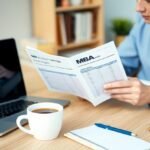Best Education Leadership Programs Available Online Many aspiring educators seek ways to enhance their leadership skills, and online programs offer flexible and accessible options. They can choose from a variety of comprehensive curricula designed to develop necessary competencies for effective leadership in educational settings. These programs provide cutting-edge knowledge, interactive learning experiences, and opportunities for networking with industry experts. By enrolling in such programs, she can drive positive change in her institution and foster an inspiring learning environment. In this blog post, they will explore some of the best online education leadership programs available today.

Key Takeaways: Best Education Leadership Programs Available Online
- Diverse Program Options: Various online education leadership programs cater to different learning styles and professional goals.
- Flexible Learning: Online formats allow busy professionals to balance their studies with work and personal commitments.
- Accreditation Matters: Choosing accredited programs ensures a recognized qualification that adds value to your career.
- Networking Opportunities: Online programs often provide access to a vibrant network of peers and industry leaders.
- Focused Curriculum: Many programs emphasize practical applications, preparing graduates for real-world leadership roles in education.
Understanding Educational Leadership
Your journey into educational leadership begins with a clear understanding of what this field encompasses. Educational leadership refers to the processes through which leaders in educational settings, such as schools and universities, guide the development and execution of academic programs to ensure that every student receives a quality education. The significance of educational leadership cannot be overstated, as it directly impacts the efficacy of teaching and learning environments. Leaders set the tone for the institution’s vision, culture, and priorities, influencing not only the academic success of students but also their overall well-being and engagement in the educational process.
Definition and Importance of Educational Leadership
To fully grasp the essence of educational leadership, one must recognize its multifaceted nature that blends administrative responsibilities with the vital role of nurturing and cultivating relationships within the learning community. Effective educational leaders strive to create inclusive environments that foster collaboration among teachers, students, and parents, all while navigating the complexities of educational policies and institutional goals. They are tasked with the responsibility of advancing pedagogical frameworks and enhancing learning opportunities, ultimately shaping the direction of the educational institution.
The Role of Educational Leaders in Schools
Above all, educational leaders play a pivotal role in the daily functioning of schools. They are responsible for formulating strategic plans that align with the broader goals of educational improvement and community engagement. Through effective communication and strong interpersonal skills, they promote a positive school culture focused on high expectations for all stakeholders, including students and teachers. Furthermore, educational leaders have the duty to manage resources, including human capital and funding, to ensure that schools can meet the diverse needs of their students.
Educational leaders also serve as advocates for educational reform, ensuring that their institutions remain responsive to changes within the educational landscape. By analyzing data on student performance, they can identify areas in need of improvement and implement targeted interventions that drive student achievement. Additionally, they inspire and mentor teachers, helping them to refine instructional strategies and adopt new methodologies that promote engaging learning experiences. Through their efforts, educational leaders not only shape the educational journey of students but also play an imperative role in securing a brighter future for the wider community.


The Rise of Online Education Leadership Programs
One significant evolution in the educational landscape has been the emergence of online education leadership programs. As technology advances and societal needs shift, educational institutions have adapted by creating dynamic platforms that cater to diverse learning styles and schedules. The accessibility of online learning allows educational leaders, regardless of their geographical locations, to pursue advanced studies without the need for physical presence in a traditional classroom. This innovation is reshaping how aspiring leaders acquire vital skills and knowledge needed to effectively guide educational institutions in a rapidly changing world.
Evolution of Online Learning Platforms
Education has experienced remarkable transformation over the past decades, particularly with the development of online learning platforms. Initially, online education was met with skepticism regarding its effectiveness and rigor; however, this perception has changed dramatically. Today, institutions provide high-quality, engaging programs that incorporate multimedia elements, interactive assignments, and peer collaboration to enhance the learning experience. The integration of technology, such as Virtual Reality (VR) and Artificial Intelligence (AI), further enriches these programs, making learning more immersive and practical.
Benefits of E-Learning for Educational Leaders
One prevailing benefit of e-learning for educational leaders is the flexibility it offers. Leaders can complete coursework at their own pace, allowing them to balance professional responsibilities with personal commitments. This flexibility ensures they can engage deeply with the material without compromising their existing obligations. Moreover, online education fosters a broader network of connections, enabling leaders to collaborate with peers from diverse backgrounds, enriching their perspectives and enhancing their capacity to effect change within their organizations.
Online education not only presents opportunities for flexibility and networking but also allows educational leaders to access a vast array of resources and expertise. With the availability of online libraries, seminars, and workshops, they can continually update their knowledge and skills in real-time. This environment promotes a culture of lifelong learning, ensuring that leaders are well-equipped to confront the challenges of contemporary education. As they embrace these programs, they are better prepared to instigate meaningful change and lead effectively in their respective institutions.
Key Components of Effective Education Leadership Programs
Unlike traditional educational pathways, effective education leadership programs equip aspiring leaders with comprehensive skills tailored for modern challenges in the educational landscape. These programs often emphasize the necessity of integrating theory with practical strategies to foster effective leadership. For instance, the K-12 Educational Leadership: School Leadership Training | CCL provides a framework that encompasses various elements imperative for developing competent leaders in K-12 settings.
Curriculum Overview
Behind every successful education leadership program lies a carefully crafted curriculum designed to address the multifaceted challenges educational leaders face. Standard curricular elements typically include organizational theory, community engagement, instructional leadership, and data-driven decision-making. These components ensure that participants gain both theoretical knowledge and practical skills, enabling them to implement effective strategies in real-world settings.
Moreover, many programs emphasize experiential learning through case studies and simulations, allowing leaders to practice their decision-making and problem-solving skills in controlled environments. This hands-on approach helps to solidify their understanding and application of key concepts in educational leadership, ultimately preparing them to foster positive change within their organizations.
Leadership Skills Development
An effective education leadership program places significant emphasis on the development of imperative leadership skills. These skills encompass emotional intelligence, strategic thinking, team management, and conflict resolution, all of which are vital for navigating the dynamic challenges within educational institutions. Participants learn to assess their own leadership styles and adapt them to varying situations, which enhances their ability to lead diverse teams effectively.
Through interactive workshops and peer discussions, she gains insights into different leadership methodologies and frameworks, promoting an adaptable approach to leadership. She enhances her ability to inspire and motivate her staff while fostering an inclusive and collaborative work environment that promotes student success.
Development opportunities often extend beyond conventional training as they encourage participants to engage in self-reflection and peer feedback. This continuous process of learning and adaptation positions them well for future leadership roles within their educational organizations.
Mentorship and Networking Opportunities
The significance of mentorship and networking cannot be overstated in education leadership programs. Establishing connections with seasoned leaders provides participants with invaluable insights and guidance. These relationships often lead to collaborative opportunities, knowledge sharing, and support networks that can greatly enhance a leader’s effectiveness and confidence in their role.
Furthermore, networking with peers in similar positions allows upcoming leaders to exchange ideas, strategies, and challenges faced within their educational environments. This collective learning experience cultivates a sense of community that often extends beyond the program duration, benefiting participants throughout their careers.
In fact, many programs facilitate structured mentorship pairings where participants can seek advice and encouragement from accomplished leaders within their field. By leveraging these relationships, emerging leaders can navigate their professional journeys with informed perspectives and enhanced resilience in the educational arena.
Top Online Education Leadership Programs
Keep exploring the vast array of online education leadership programs available to those seeking to make significant impacts in the field of education. As aspiring leaders consider their options, several universities stand out for their comprehensive curricula, renowned faculty, and innovative approaches to leadership and development.
University of Southern California (USC)
Above all else, the University of Southern California offers a robust online Master of Education in Educational Leadership program that prepares students to become transformative leaders in education. This program emphasizes social justice, equity, and the importance of community engagement. Students develop the ability to analyze and implement positive changes within educational institutions, equipping them with both theoretical knowledge and practical skills necessary for today’s challenges.
The faculty at USC are renowned leaders in the field, providing students with insights drawn from their extensive professional experiences. The program encourages collaboration and networking, offering students the opportunity to connect with influential professionals across various educational sectors. With a flexible online format, students can balance their studies with professional and personal commitments while engaging in stimulating coursework that fosters their leadership potential.
Harvard University Graduate School of Education
One of the most prestigious institutions globally, Harvard University Graduate School of Education, provides a well-respected Human Development and Education program. This online program allows students to probe into the human aspect of educational leadership, exploring the intersection of policy, practice, and the psychological factors that impact learning environments. With personalized support, students navigate challenges while developing their unique leadership style.
Even more, Harvard’s diverse curriculum includes a focus on creating inclusive learning environments, which is necessary in an increasingly multicultural society. Through rigorous courses and access to influential thought leaders in education, students learn to design strategic initiatives that can lead to substantial improvements in their educational contexts.
Johns Hopkins University School of Education
Education at Johns Hopkins University School of Education emphasizes rigorous research and practical application, resulting in a forward-thinking program focused on developing effective leaders. The online Master of Science in Education program allows students to tailor their studies to their professional goals, whether they aim to improve educational policy, lead a school, or influence systems at a district level. The program’s coursework encompasses critical leadership theories, data analysis skills, and ethical considerations in decision-making.
To enhance the learning experience, students benefit from collaborative projects and networking opportunities with peers and mentors. This focus on real-world application ensures that students are well-prepared to face the challenges of educational leadership in diverse settings.
University of Illinois at Urbana-Champaign
Between the myriad choices available, the University of Illinois at Urbana-Champaign stands as a beacon of comprehensive online education leadership programs. Their Master of Education in Educational Leadership cultivates a strong foundation in educational theories while emphasizing practical strategies for organizational improvement in schools and other educational institutions. The program is designed for current educators who aspire to take on leadership roles and effect meaningful change.
Indeed, students at the University of Illinois benefit from engaging with experienced faculty who combine academic rigor with real-world insights. The program promotes the development of critical thinking, problem-solving, and leadership skills necessary for navigating the complexities of educational environments.
Arizona State University Online
University challenges students’ analytical and strategic thinking through its online Master of Education in Educational Leadership program. Arizona State University Online focuses on equipping graduates with the knowledge and skills needed to influence educational practices and policies effectively. This program encourages innovation, fostering visionary leadership that aims to enhance student outcomes across various educational settings.
Illinois highlights the opportunity to engage in hands-on learning through applicable coursework and field experiences. The program’s flexible online format supports working professionals, allowing them to integrate their learning with their day-to-day responsibilities in educational roles.
Comparing Program Costs and Financial Aid
All aspiring educational leaders must consider the financial implications of their study programs. With various online education leadership programs available, it is vital to examine the differences in tuition costs and the available financing options. Understanding this aspect can enable individuals to make informed decisions that best align with their financial circumstances and career goals.
| Program Characteristics | Cost Overview |
|---|---|
| Tuition Per Credit Hour | $500 – $1,500 |
| Estimated Total Program Cost | $15,000 – $60,000 |
| Application Fees | $50 – $200 |
| Course Materials | $200 – $1,000 |
Tuition Structures and Fees
Behind every education leadership program lies a distinct tuition structure that can impact an individual’s choice. Some institutions may charge per credit hour, while others offer flat-rate tuition for the entire program. This variance can significantly affect the overall cost, especially if a candidate intends to take additional courses. Additionally, it is important for individuals to consider the extra fees associated with applications, course materials, and any ongoing student fees that may be incurred throughout their studies.
Furthermore, potential students should also keep an eye on hidden costs such as technology fees or graduation expenses that can accumulate over time. By thoroughly investigating these structures, students can better anticipate their financial commitments and select a program that aligns with their budget.
Available Scholarships and Financial Aid
Financial aid is a vital aspect of pursuing higher education, as many students seek avenues to alleviate the financial burden of tuition. Financial aid packages may include federal grants, loans, work-study opportunities, and institutional scholarships. Programs often have financial aid departments that can provide assistance in identifying and applying for these resources. By completing the Free Application for Federal Student Aid (FAFSA), students can access government-funded grants and low-interest loan options that can ease the burden of education expenses.
Another integral part of the financial landscape includes various scholarships specifically targeting those pursuing leadership roles in education. These scholarships can come from universities, educational organizations, and private benefactors. They can vary by criteria, including academic excellence, professional experience, and financial need. He or she should conduct thorough research to identify all available opportunities and optimize their chances for assistance. By leveraging these resources, they can effectively bridge the gap between their aspirations and financial realities. Additionally, many institutions offer support services that guide applicants through the process, streamlining access to these crucial funds that can assist in powering their educational journey.
Career Outcomes for Graduates of Online Education Leadership Programs
Many individuals pursuing online education leadership programs are keenly aware of the diverse career paths available to them upon graduation. With a specialized skill set in educational administration, policy development, and instructional leadership, graduates are well-equipped to take on leadership roles in various educational settings. They may find themselves working as school administrators, curriculum directors, or even educational consultants, contributing to the improvement of educational quality and accessibility across the board.
Job Opportunities and Advancement
At the heart of educational leadership lies numerous job opportunities and avenues for advancement. Graduates can seek positions as principals, vice-principals, or district administrators, where they are tasked with leading schools and managing faculty, staff, and student affairs. Additionally, with the growing emphasis on technology and online learning, an increasing number of roles are becoming available in educational technology and online program management, further expanding the landscape for those who hold degrees in educational leadership.
As they progress in their careers, they may also gain the qualifications necessary for higher administrative positions, such as superintendent roles or executive leadership in educational organizations. This trajectory allows graduates to leverage their training to effect meaningful change in educational institutions, promoting innovation and improvement in teaching and learning practices.
Salary Expectations for Educational Leaders
Among the many benefits of pursuing an online education leadership program are the attractive salary prospects associated with advanced positions in the education sector. As educational leaders advance into roles with greater responsibility, they can expect their salaries to reflect their expertise and leadership capabilities. Data suggest that individuals in these positions earn competitive salaries, often exceeding the average incomes of educators not in leadership roles.
Leaders in educational settings typically enjoy salaries that vary by location, institution type, and years of experience. For instance, a school principal may earn an average annual salary between $80,000 and $150,000, depending on the region and school district’s funding. Executive roles, such as superintendents, often command even higher salaries, reflecting the heightened level of responsibility and decision-making authority they hold. Additionally, many educational leaders benefit from comprehensive benefits packages that can include health insurance, retirement plans, and performance bonuses, making these roles not only rewarding but also economically attractive.
Also Read: Essential Steps – How To Select Top MBA Programs For Maximum Value
Conclusion
Following this exploration of online education leadership programs, it becomes evident that individuals aspiring to influence the educational landscape have various avenues to enhance their knowledge and skills. They can take advantage of these offerings to not only develop their leadership capabilities but also to stay at the forefront of innovative practices in education. As they navigate through their chosen programs, they will gain valuable insights that are applicable in real-world settings, ensuring that they are prepared to tackle the challenges of educational institutions today.
Moreover, these online programs cater to diverse learning needs, making it possible for students to learn at their own pace while balancing personal and professional commitments. With institutions continuously evolving to meet the demands of modern education, it is imperative for emerging leaders to equip themselves with the necessary tools and understanding. Ultimately, investing in their education through these programs will empower them to unlock their future and make a lasting impact in their communities.
FAQs
Q: What types of education leadership programs are available online?
A: Online education leadership programs vary widely, including master’s degrees, certificates, and professional development courses. These programs often focus on important topics such as educational leadership, administration, policy analysis, and curriculum development, allowing aspiring leaders to enhance their skills and knowledge in the field of education.
Q: How do I choose the right online education leadership program for me?
A: Selecting the right program involves evaluating your career goals, preferred learning style, and schedule. Consider factors such as accreditation, faculty expertise, curriculum offerings, and program flexibility. It’s also beneficial to read reviews from current or former students to understand their experiences and the program’s impact on their careers.
Q: Are online education leadership programs recognized by employers?
A: Many online education leadership programs are offered by accredited institutions, which are widely recognized by employers. Graduates from reputable programs often find that their qualifications are respected in the job market. It’s advisable to research the school’s accreditation status and its reputation within the educational community to ensure you’ll receive a valuable credential.
Q: What kind of job opportunities can I pursue with an online education leadership degree?
A: Graduates with an online education leadership degree can explore a variety of roles including school administrator, educational consultant, curriculum coordinator, and district-level leader, among others. These positions can be found in K-12 schools, higher education institutions, and educational nonprofit organizations, offering diverse opportunities in the field.
Q: How long does it typically take to complete an online education leadership program?
A: The duration of an online education leadership program can vary greatly depending on the level of study and the structure of the program. Generally, master’s degree programs take about 1 to 2 years to complete, while certificate programs may be finished in a few months to a year. Part-time and full-time options are often available to accommodate different schedules.



